Skripal poisoning: Possible third intelligence officer involved
- Published
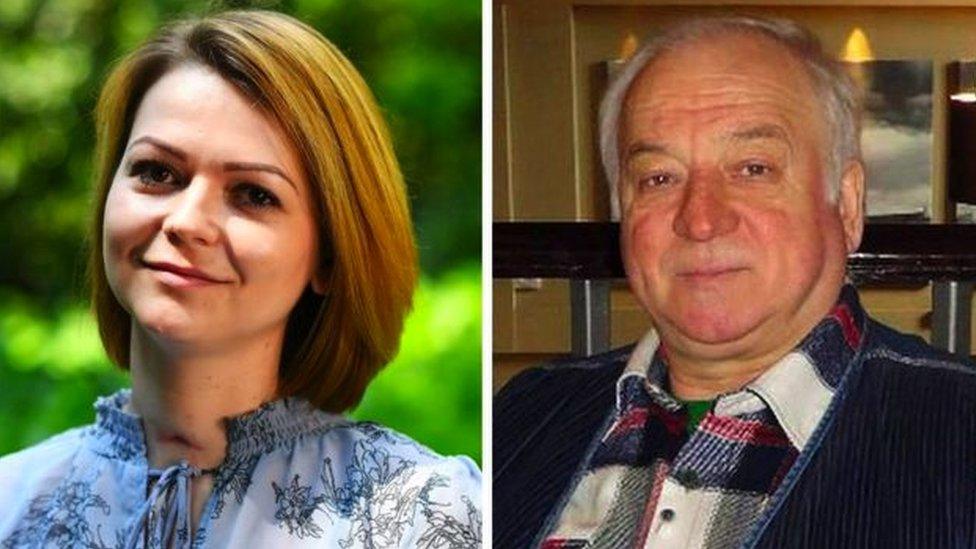
Sergei Skripal, 67, and his daughter Yulia survived the attack
A third man may have been involved in the poisoning of Sergei and Yulia Skripal in Salisbury last March.
The man, Sergey Fedotov, was identified in reports as having come to the UK at the same time as the two suspects alleged to have carried out the attack.
Investigative website Bellingcat, external said the man is a Russian military intelligence officer and it believes the name Fedotov is an alias.
A Kremlin spokesman said Russia did not know "whether this is true at all".
MI6 double agent Sergei Skripal, 67, and his daughter Yulia, then 33, were poisoned with a nerve agent known as novichok in Salisbury in March 2018. Both of them survived.
Two Russian nationals have so far been named as suspects.
Anatoliy Vladimirovich Chepiga and Alexander Mishkin have been linked to the Russian military intelligence agency GRU.
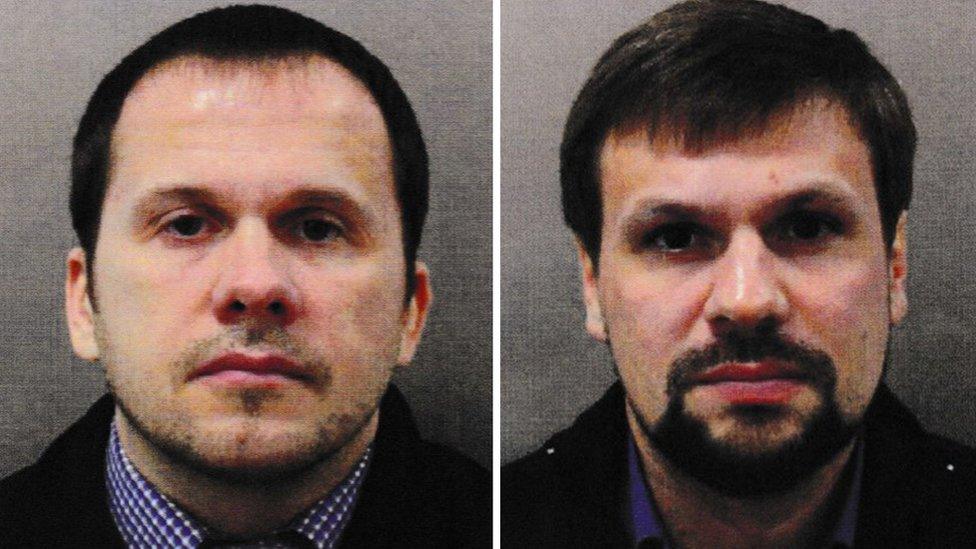
Alexander Mishkin and Anatoliy Chepiga were thought to have carried out the Salisbury attack
The British government blamed the Salisbury attack on the GRU.
Bellingcat say the third man, Fedotov, also travelled to Bulgaria in April 2015, at the time of a possible poisoning.
During the visit to Bulgaria, it's claimed that a businessman Emilian Gebrav, involved in the defence industry, was hospitalised with symptoms of poisoning.
Mr Gebrav survived.
In that case, as with his travel after the Salisbury poisoning in March last year, Fedotov failed to take the flight he was booked on.
Responding to the website's investigation, a spokesman from the Kremlin told the BBC: "We don't know how far this corresponds with reality, whether it's real at all.
"We don't know what the report's authors based their work on - how competent they are - who they are - and whether this is true at all."
The British government blamed the Salisbury attack on the GRU.
Prime Minister Theresa May said the attack on Mr Skripal had "almost certainly" been approved by the Russian state.
Moscow have consistently denied any involvement in the poisonings in Salisbury.
The Metropolitan police say they're continuing to pursue a number of lines of enquiry including identifying any other suspects who may have been involved in carrying out or planning the attack.
- Published27 September 2018
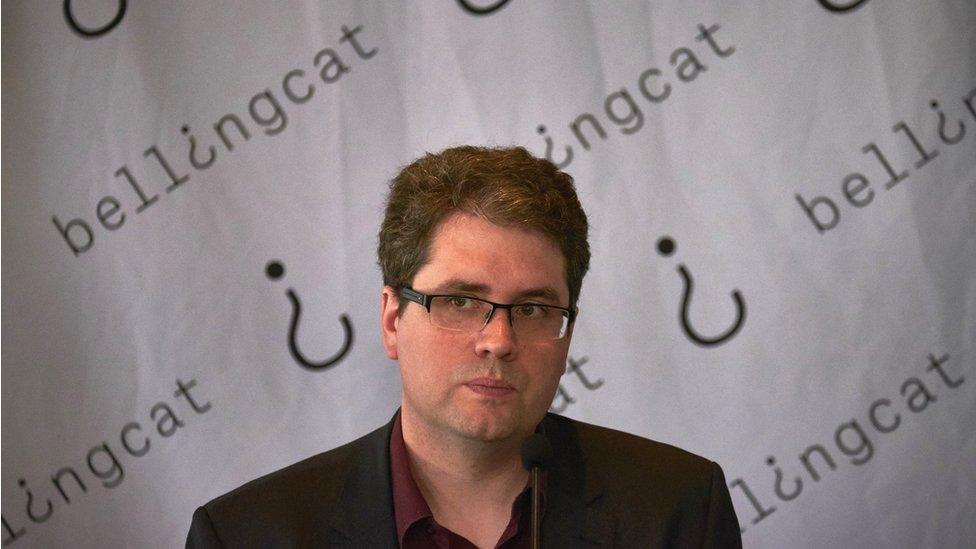
- Published7 February 2019
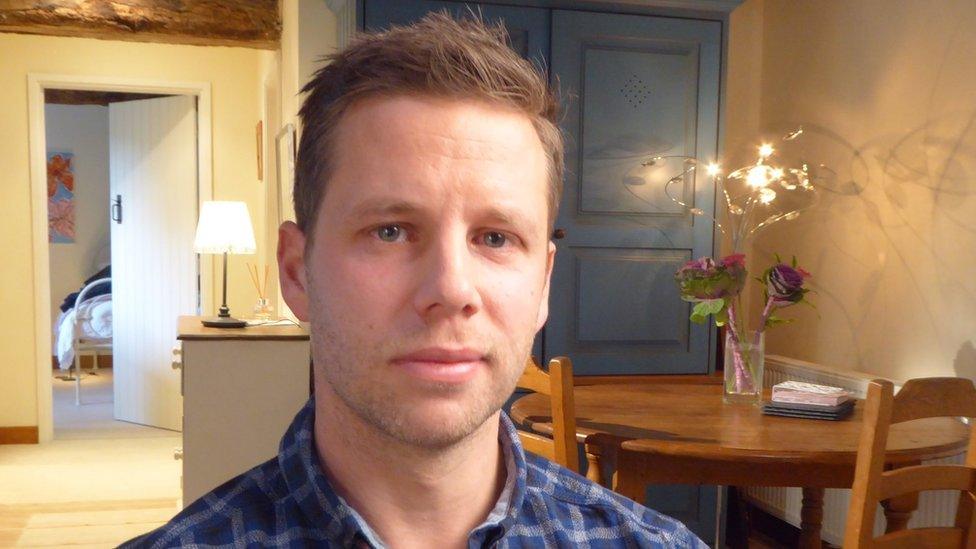
- Published9 December 2018
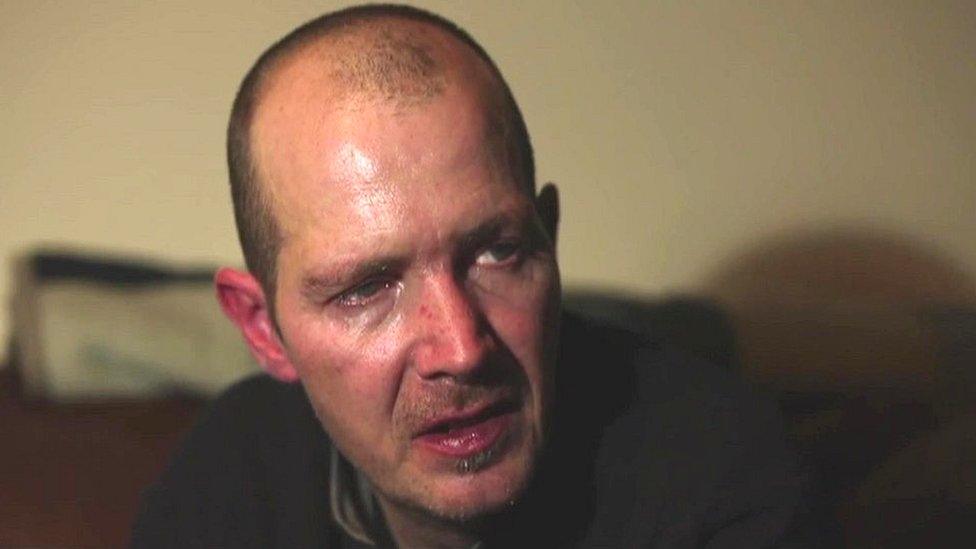
- Published8 January 2019
